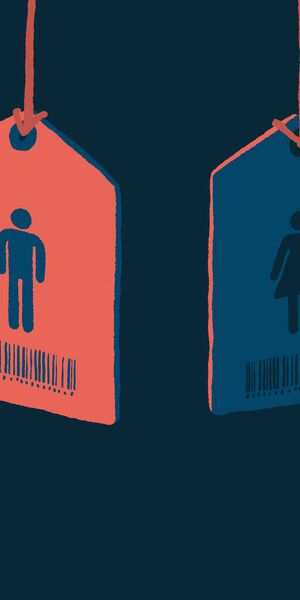Home Office criticised for not recruiting experts to assess modern slavery claims
Human Trafficking
The Home Office has come under fire over adverts for temporary staff to make crucial decisions in modern slavery cases.
The online job advert was for the role of national referral mechanism (NRM) decision-maker and would require the post-holder to confirm whether the individuals referred via the NRM are genuine victims of modern slavery. Despite the importance and complexity of the role, the advert appears to require no previous experience and indicates that the role will be paid little more than the national living wage (falling far short of the £30,000 annual salary threshold for so called “skilled workers” applied under immigration rules).
Independent MP Frank Field, who CARE has worked with on the issue of modern slavery, told the Independent that this was “appalling”. He continued: “The role of an NRM decision-maker demands great experience and an expansive knowledge of the subject area. These decisions are often literally life-or-death.”
Police, local authorities and other agencies refer possible victims to the NRM process and the information gathered is assessed by the Home Office to determine if the individuals are genuine victims of modern slavery. It is a two-stage process. Following a positive decision at the first stage, adults are able to access specialist support and assistance while the final decision is being made. A decision at that final stage confirming that someone is a victim can impact their immigration status, whether they are able to seek compensation and even whether they will be prosecuted for crimes that they were forced to commit by their traffickers.
CARE Senior Policy Officer for Human Trafficking, Louise Gleich said:
“Modern slavery cases are complex and therefore it is gravely concerning that the Home Office appears not to be recruiting experts to make the decision on whether or not someone is a victim of modern slavery.
“The wrong decision would be devastating to a victim as they would lose their entitlement to support.”
NRM delays are not an excuse
A recent BBC Radio 4 investigation highlighted the long delays facing many victims of modern slavery as they wait for government officials to confirm their status.
Information uncovered by the BBC reveals that in November 2018 2,200 people had been waiting more than a year for a decision – a decision which is supposed to be made as soon as possible after the 45-day long recovery period given to victims after the first stage decision.
These delays could have influenced the Home Office to decide to advertise for extra temporary staff to clear the back-log of cases. However, there is still a requirement for these decisions to be made correctly by trained and highly skilled members of staff.
Diane Abbott, Labour’s shadow home secretary, said: “Short term recruitment like this is how mistakes are made, and at high risk to the victims involved. It is simply unacceptable to have completely inexperienced staff assessing cases of the most vulnerable people. This must end.”
Victim advocates have been concerned for a number of years that wrong decisions are being made by the NRM. The Home Office has refused to respond to a request by The Independent under the Freedom of Information Law for information about the number of negative NRM decisions that are appealed or overturned. Recruitment of non-specialist staff intensifies the lack of confidence many have in the system.





Share story
Home Office criticised for not recruiting experts to assess modern slavery claims